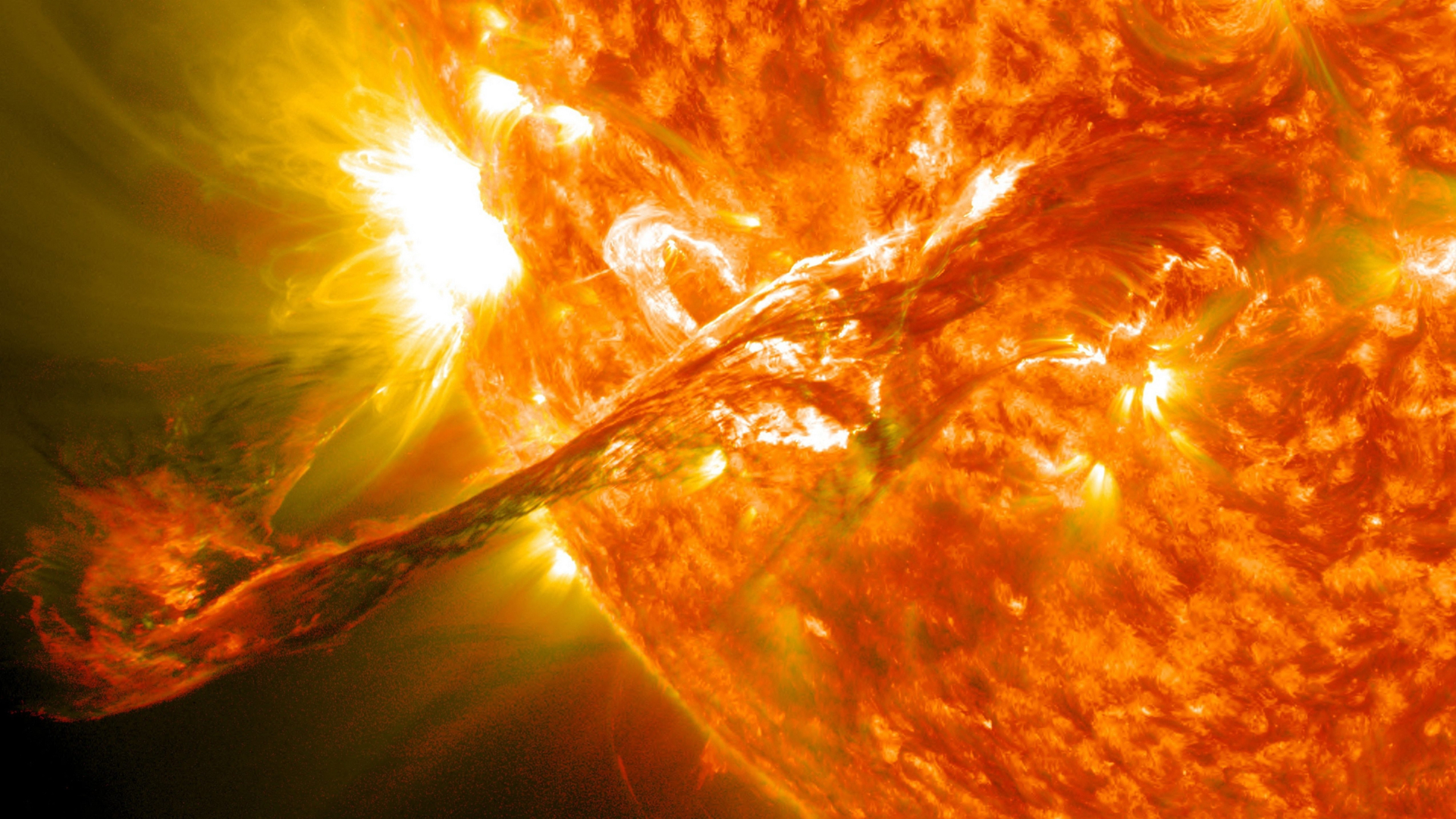Eight magnesium rich foods
These are the best magnesium rich foods to support a healthy body and brain
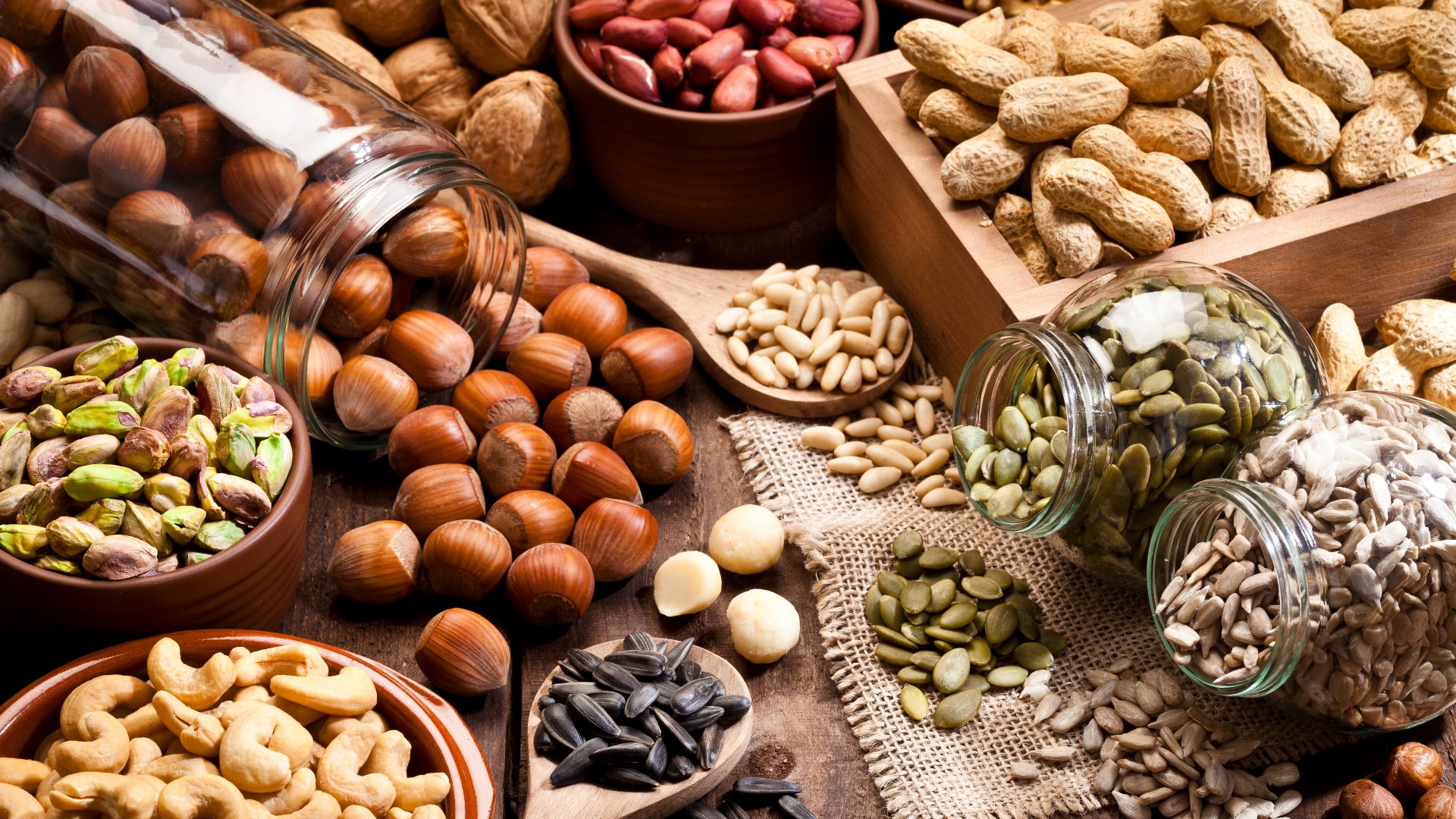
Get the world’s most fascinating discoveries delivered straight to your inbox.
You are now subscribed
Your newsletter sign-up was successful
Want to add more newsletters?

Delivered Daily
Daily Newsletter
Sign up for the latest discoveries, groundbreaking research and fascinating breakthroughs that impact you and the wider world direct to your inbox.

Once a week
Life's Little Mysteries
Feed your curiosity with an exclusive mystery every week, solved with science and delivered direct to your inbox before it's seen anywhere else.

Once a week
How It Works
Sign up to our free science & technology newsletter for your weekly fix of fascinating articles, quick quizzes, amazing images, and more

Delivered daily
Space.com Newsletter
Breaking space news, the latest updates on rocket launches, skywatching events and more!

Once a month
Watch This Space
Sign up to our monthly entertainment newsletter to keep up with all our coverage of the latest sci-fi and space movies, tv shows, games and books.

Once a week
Night Sky This Week
Discover this week's must-see night sky events, moon phases, and stunning astrophotos. Sign up for our skywatching newsletter and explore the universe with us!
Join the club
Get full access to premium articles, exclusive features and a growing list of member rewards.
Magnesium is an important mineral for many bodily functions, so including lots of magnesium rich foods in our diets is important to make sure we’re getting sufficient amounts. Magnesium is used to convert the energy in our food into a usable format so that we can use it as fuel. We store some magnesium in our skeleton, but we need to ensure that we are constantly replenishing this supply as it is used up.
The daily recommended intake of magnesium is 400-420 mg daily for men and 310-320 mg for women, with pregnant women requiring a little more. Most of us get sufficient magnesium from our diets by consuming magnesium rich foods, but certain health conditions can cause nutrient malabsorption, meaning the best magnesium supplement may be necessary for some people.
Below, you’ll find a range of magnesium rich foods that are worth adding to your diet.
- Related: Nine benefits of magnesium
1. Nuts
Nuts are a great source of magnesium, with most nuts containing an abundance of minerals. This makes them a great snack for supporting your body. Whether you’re eating raw nuts or nut butters, your body will thank you for the magnesium boost.
- Cashews – 292mg per 100g
- Almond butter – 270mg per 100g
- Pistachios – 121mg per 100g
2. Seeds
Similar to nuts, seeds make great snacks, being high in plant based protein, vitamins and minerals to support healthy bodily function. We recommend you try roasting your own seeds for snacking instead of buying roasted and salted seeds from the supermarket to avoid consuming more than the recommended amount of sodium. You can also sprinkle them on salads, oatmeal or even try making your own chia pudding.
- Sesame seeds – 351mg per 100g
- Chia seeds – 335mg per 100g
- Sunflower seeds – 129mg per 100g
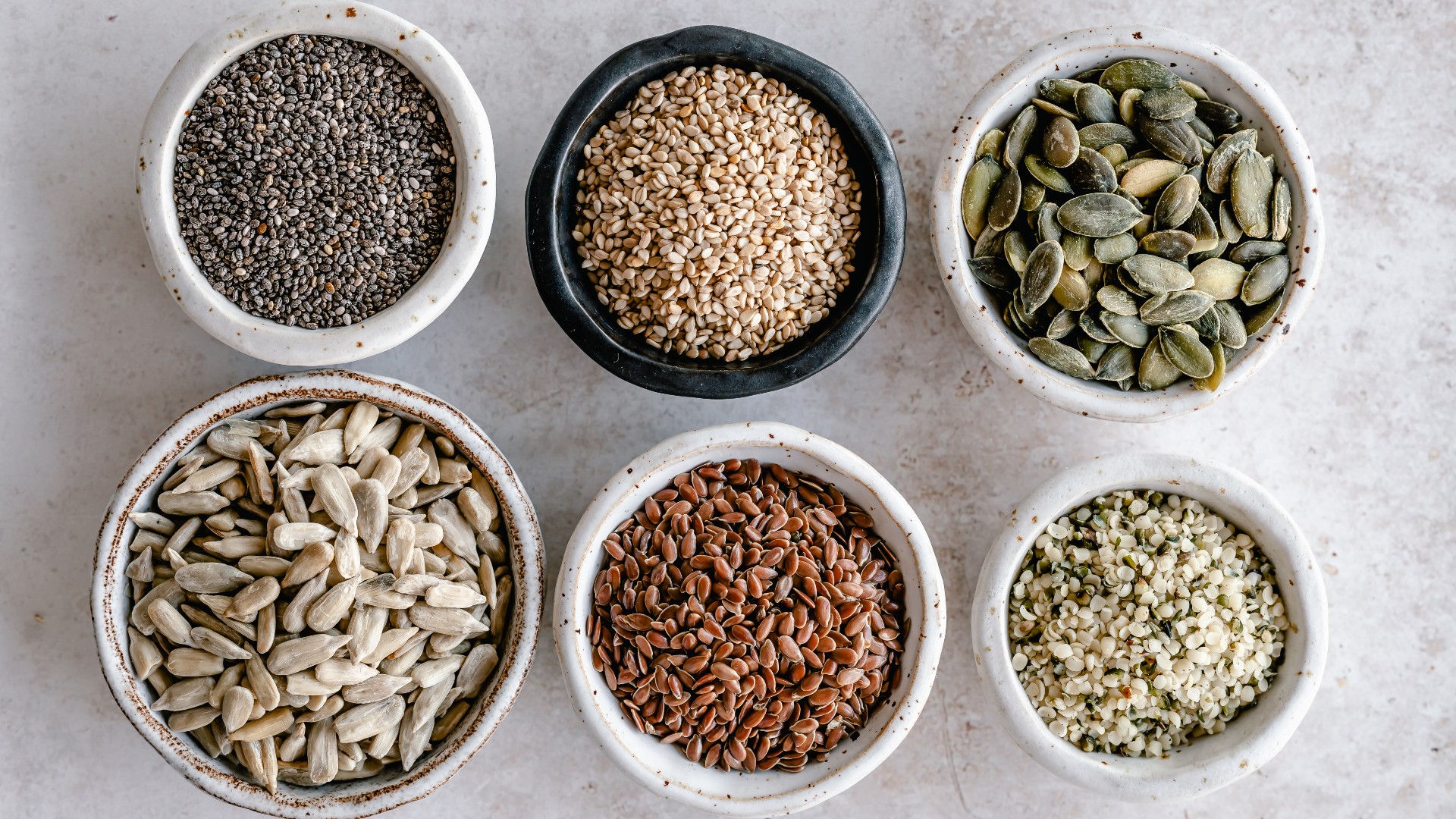
3. Leafy greens
Leafy greens are a great component for lots of meals. You can wilt them down and season them as a side dish, eat them raw as a base for salads, or even crisp them up in the oven for a healthy alternative to potato chips. Not all leafy greens are created equal when it comes to magnesium content. Dark leafy greens have a higher magnesium content then lighter greens such as lettuce.
- Spinach – 79mg per 100g
- Beet leaves – 70mg per 100g
- Kale – 47mg per 100g
4. Legumes
Legumes are a fantastic source of plant-based protein as well as magnesium and other vitamins and minerals. Soy-based products such as tofu are also a great, low-fat alternative to red meat and you can add canned or dried beans to soups or stews to give them a hearty boost.
Get the world’s most fascinating discoveries delivered straight to your inbox.
- Black beans – 180mg per 100g
- Red kidney beans – 164mg per 100g
- Edamame beans – 65mg per 100g
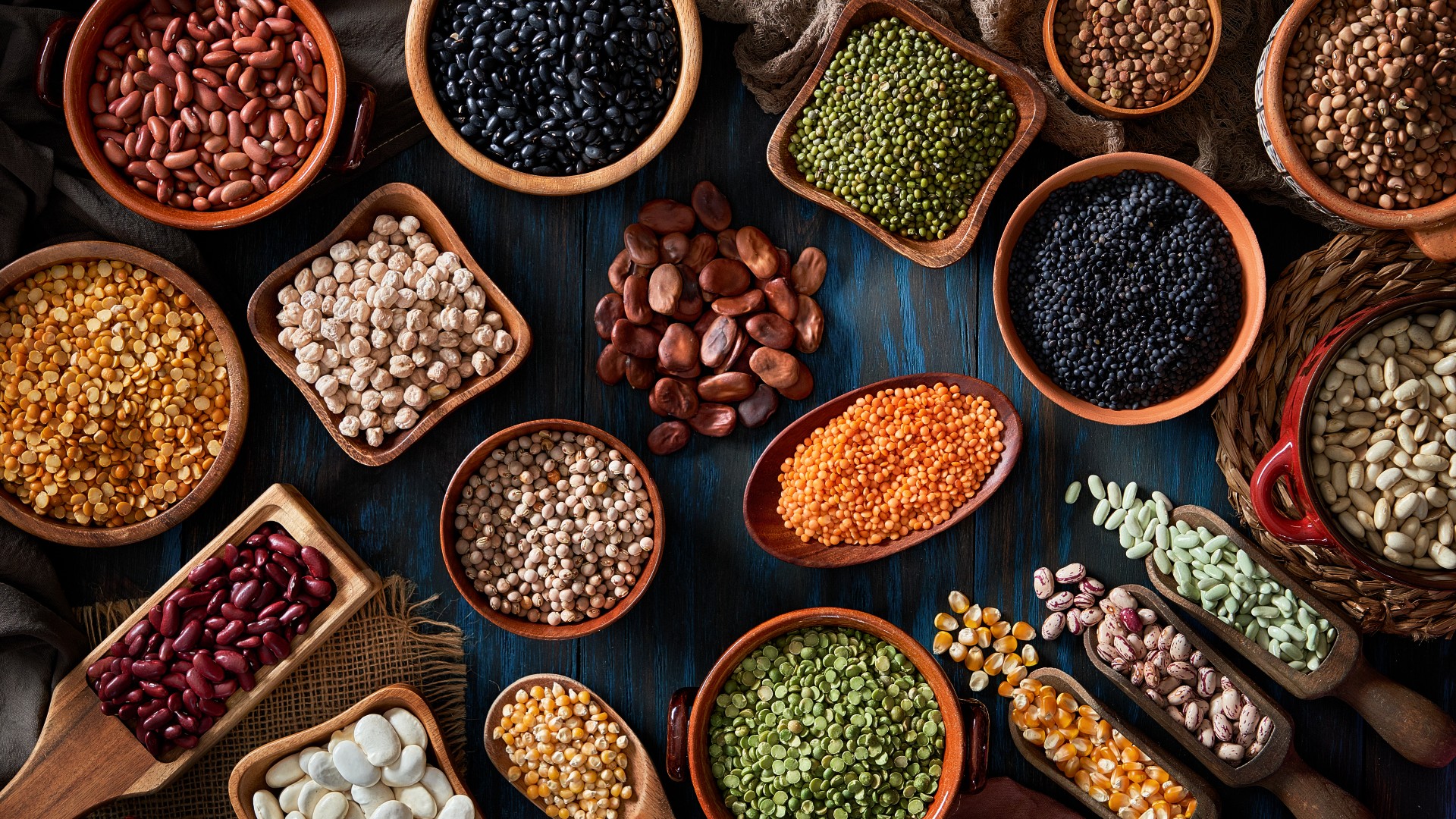
5. Grains
The USDA dietary guidance for 2020-2025 recommends you base your meals around starchy carbohydrates, like whole grain pasta, rice or bread. Whole grains are a great source of fiber, as they contain the entire unprocessed kernel instead of part of the grain being processed out, as they are with refined white grains. As a result, they tend to be higher in magnesium than their refined counterparts. Swap out your white toast for some whole grain toast with nut butter for a magnesium-rich breakfast.
- Wholegrain bread – 76.6mg per 100g
- Rye bread – 40mg per 100g
- Brown rice – 39mg per 100g
6. Oily fish
Oily fish is a fantastic source of polyunsaturated fatty acids as well as being rich in vitamins and minerals, such as magnesium. These fatty acids are important for many functions in the brain, much like magnesium. So, for a happy, healthy brain, try to eat at least two portions of oily fish per week.
- Salmon - 95mg per 100g
- Herring - 46mg per 100g
- Sardines - 39mg per 100g
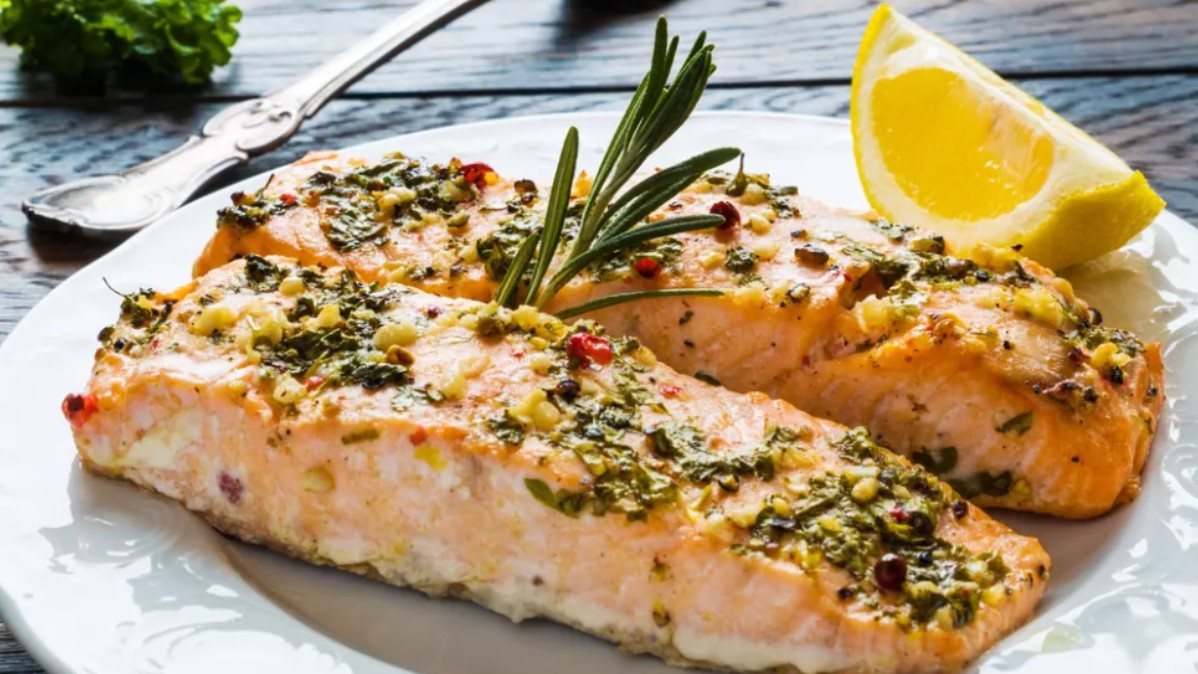
- Related: What is dietary fat?
7. Dark Chocolate
Dark chocolate is a great source of magnesium and you’ll find the darker the chocolate, the richer it is in magnesium. Cocoa beans are a bit of a misnomer as they are neither a bean or legume, but are in fact the seed of the Theobroma cacao tree. Add some dark chocolate to your chia pudding for a magnesium-packed dessert or breakfast that tastes fantastic.
- 45-50% cocoa solids - 146mg per 100g
- 60-69% cocoa solids - 176mg per 100g
- 70-85% cocoa solids - 228mg per 100g
8. Avocados
An avocado contains 29 mg of magnesium per 100g, with the average avocado weighing around 170g. Avocados are packed with good monounsaturated and polyunsaturated fats, which are also great for brain function. Avocado is also quite a neutral-tasting fruit, which makes it great for adding to salads, mashing onto toast, or even dropping into cold pasta dishes for a bit of texture.
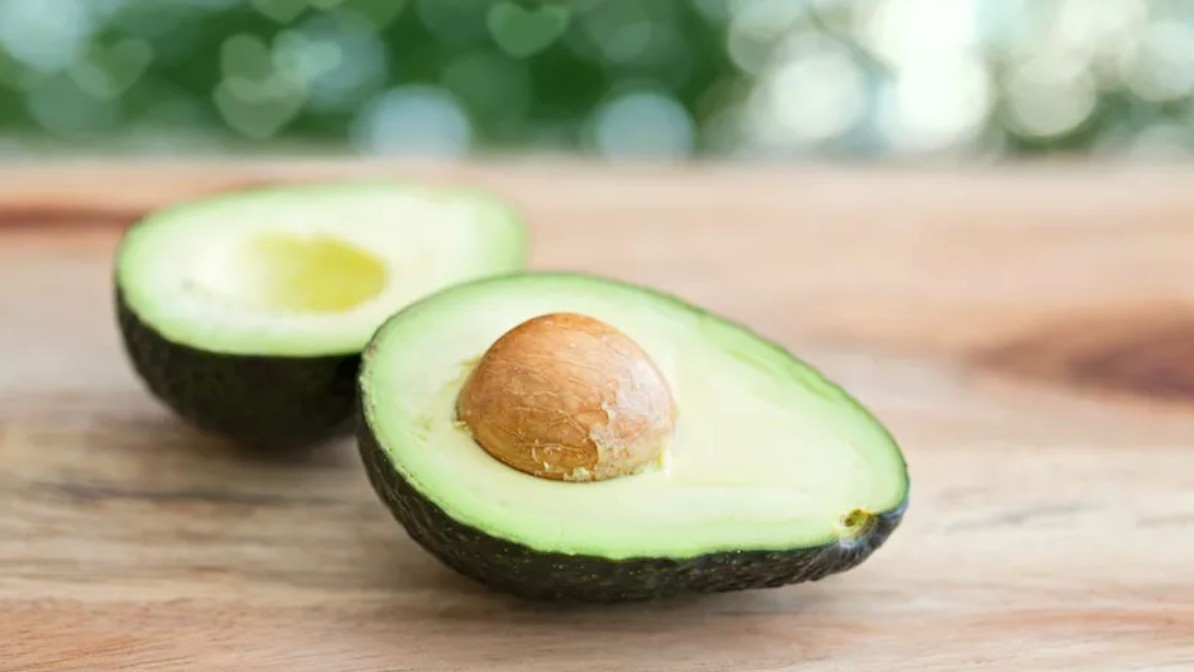
Extra considerations
Cristy Dean, registered dietician and owner of Fettle and Bloom Nutrition, tells us that some people must be extra careful to avoid deficiency and that eating magnesium rich foods may not be enough.
“Those with Crohn's or coeliac disease, type 2 diabetes, alcoholism and the elderly are more at risk of magnesium deficiency,” she says.
Dean also notes that magnesium toxicity is a risk, but not from dietary sources. “Magnesium that is naturally present in food is not harmful and does not have to be limited as our body has a way of getting rid of any excess via the kidneys. However, supplementation can be harmful if taken in the wrong dose.
“The best way to meet requirements is by eating a variety of foods. If you are worried about your magnesium levels or suspect you may be deficient, speak to a medical professional about supplementation.”
This article is for informational purposes only and is not meant to offer medical advice.

Lou Mudge is a health writer based in Bath, United Kingdom for Future PLC. She holds an undergraduate degree in creative writing from Bath Spa University, and her work has appeared in Live Science, Tom's Guide, Fit & Well, Coach, T3, and Tech Radar, among others. She regularly writes about health and fitness-related topics such as air quality, gut health, diet and nutrition and the impacts these things have on our lives.
She has worked for the University of Bath on a chemistry research project and produced a short book in collaboration with the department of education at Bath Spa University.
 Live Science Plus
Live Science Plus










